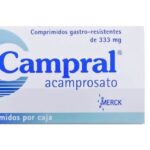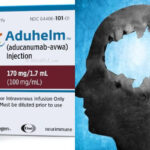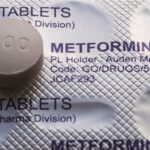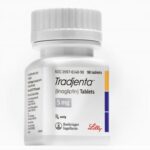Brexanolone (Zulresso): Uses, Mechanism of Action, Reviews, Cost
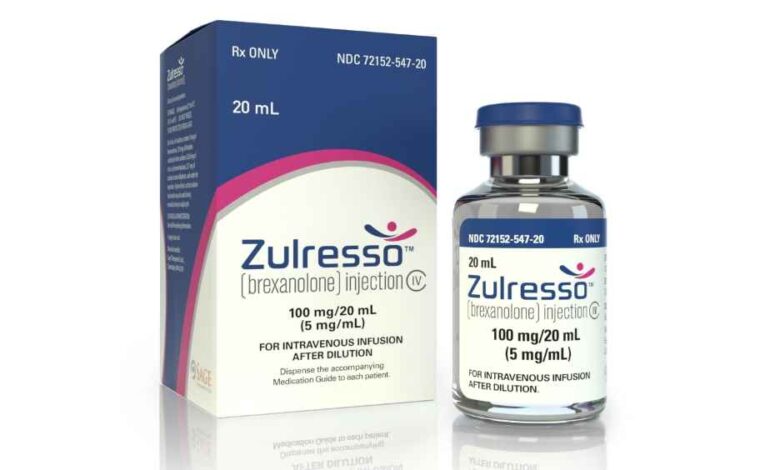
What Is Brexanolone And What Does It Treat?
Brexanolone (Zulresso) is s a prescription medicine used to treat Postpartum Depression in adults. Brexanolone (Zulresso) is a type of antidepressant called a neuroactive steroid gamma-aminobutyric acid (GABA) A receptor positive modulator indicated for the treatment of postpartum depression (PPD) in adults.
Brexanolone (Zulresso) is available only through a restricted program under a Risk Evaluation and Mitigation Strategy (REMS) called the Zulresso REMS. In clinical studies, treatment with ZULRESSO was completed in 2.5 days
How Brexanolone (Zulresso) works
The exact mechanism of action of brexanolone in the treatment of postpartum depression is not fully understood but is thought to be related to its positive allosteric modulation of GABAA receptors. Allosteric modulation of neurotransmitter receptor activity results in varying degrees of desired activity rather than complete activation or inhibition of the receptor.
Brexanolone (Zulresso) does not directly affect monoaminergic systems. Positive allosteric modulators of the GABAA receptor enhance the response of naturally occurring GABA by binding to the receptor and increasing neuronal inhibition by GABA.
What Is The Most Important Information I Should Know About Brexanolone (Zulresso)?
Brexanolone (Zulresso) may cause you to feel very sleepy (excessive sedation) or pass out (loss of consciousness). Your healthcare provider should check you for your symptoms of excessive sleepiness every 2 hours while you are awake.
During your Brexanolone (Zulresso) infusion, tell your healthcare provider right away if you feel like you cannot stay awake during the time you are normally awake or if you feel like you are going to pass out. Your healthcare provider may lower your dose or stop the infusion until your symptoms go away.
You must have a caregiver or family member with you to help care for your child(ren) during your Brexanolone (Zulresso) infusion.
Because of the risk of serious harm resulting from excessive sedation or sudden loss of consciousness, Brexanolone (Zulresso) is only available through a restricted program called ZULRESSO REMS.
What Should I Discuss With My Health Care Provider Before Taking Brexanolone (Zulresso)?
• Symptoms of your condition that bother you the most
• If you have thoughts of suicide or harming yourself
• Medications you have taken in the past for your condition, whether they were effective or caused any adverse effects
• If you experience side effects from your medications, discuss them with your provider. Some side effects may pass with time, but others may require changes in the medication.
• Any other psychiatric or medical problems you have, including kidney problems.
• All other medications you are currently taking (including over-the-counter products, herbal and nutritional supplements) and any medication allergies you have.
• Other non-medication treatments you are receiving, such as talk therapy or substance abuse treatment. Your provider can explain how these different treatments work with the medication.
• If you are pregnant, plan to become pregnant, or are breastfeeding
• If you drink alcohol or use drugs
How Should I Take Brexanolone (Zulresso)?
Brexanolone (Zulresso) is given to you by continuous intravenous (IV) infusion. Your Brexanolone (Zulresso) infusion will last for a total of 60 hours (2.5 days). A healthcare provider must be available on-site to continuously monitor you for the duration of the infusion.
What Should I Avoid While Taking Brexanolone (Zulresso)?
Brexanolone (Zulresso) may make you feel dizzy and sleepy. Do not drive a car or do other activities that require mental alertness after your Brexanolone (Zulresso) infusion until your feeling of sleepiness has completely gone away.
Do not drink alcohol during your Brexanolone (Zulresso) infusion. Drinking alcohol while receiving Brexanolone (Zulresso) can increase the risk of excess sleepiness.
Can a pregnant woman take Brexanolone (Zulresso)?
It is not known if Brexanolone (Zulresso) will harm your unborn baby. There is a pregnancy registry for females who are exposed to Brexanolone (Zulresso) during pregnancy. The purpose of the registry is to collect information about the health of females exposed to Brexanolone (Zulresso) and their baby. If you become pregnant during treatment with Brexanolone (Zulresso), talk to your healthcare provider about registering with the National Pregnancy Registry for Antidepressants at 1-844-405-6185 or visit https://womensmentalhealth.org/clinical-and-research-programs/pregnancyregistry/antidepressants/.
Can a Breastfeeding woman take Brexanolone (Zulresso)?
Let your healthcare provider know if you are breastfeeding or plan to breastfeed. Brexanolone (Zulresso) passes into breast milk. Talk to your healthcare provider about the risks and benefits of breastfeeding and about the best way to feed your baby while receiving Brexanolone (Zulresso).
What Are The Possible Side Effects Of Brexanolone (Zulresso)?
Common side effects of Brexanolone (Zulresso) include:
- Drowsiness,
- Dry mouth
- Flushing, and Hot flushes
- Loss of consciousness
- Sleepiness
What Other Medications May Interact With Brexanolone (Zulresso)?
Tell your healthcare provider about all the medicines you take, including prescription and over-the-counter medicines, vitamins, and herbal supplements.
Especially tell your healthcare provider if you take
- other antidepressants
- opioids
- CNS depressants such as benzodiazepines
Tell your doctor if you drink alcohol or have kidney problems. Your healthcare provider will decide if other medicines can be taken with Brexanolone (Zulresso).
Is Brexanolone (Zulresso) a controlled substance?
Yes, Brexanolone (Zulresso) is a controlled substance, which means its use is closely monitored by the federal government. Each controlled substance is assigned a schedule based on its medical use, if any, and its potential for misuse. Zulresso is classified as a schedule 4 (IV) drug.
How much does Brexanolone (Zulresso) cost?
As with all medications, the cost of Brexanolone (Zulresso) can vary. Sage Therapeutics, the manufacturer of Zulresso, says in its quarterly report that the list price is $7,450 for one vial. Treatment requires an average of 4.5 vials, so the total cost would be about $34,000 before discounts. The actual price you’ll pay depends on your insurance plan.
Are There Any Risks For Taking Brexanolone (Zulresso) For Long Periods Of Time?
Yes, there is a risk of physical and/or emotional dependence (addiction). Brexanolone (Zulresso) is not meant to be used as a long-term treatment. After you receive Brexanolone (Zulresso), you and your doctor can discuss safe and effective antidepressant treatments that you can take long-term if needed. Talk to your provider about the risk.

